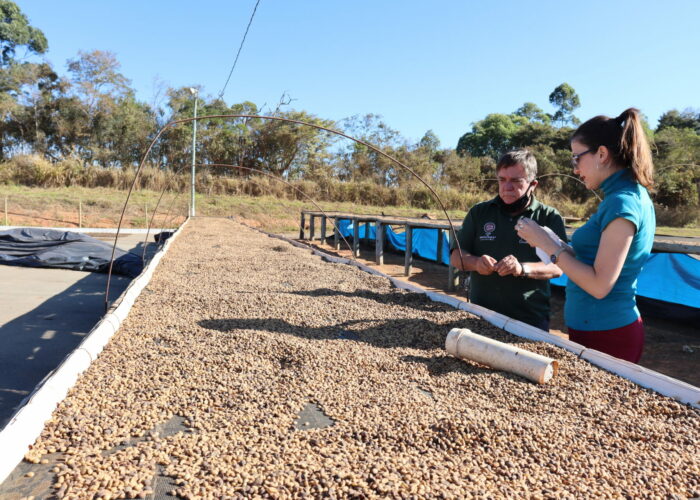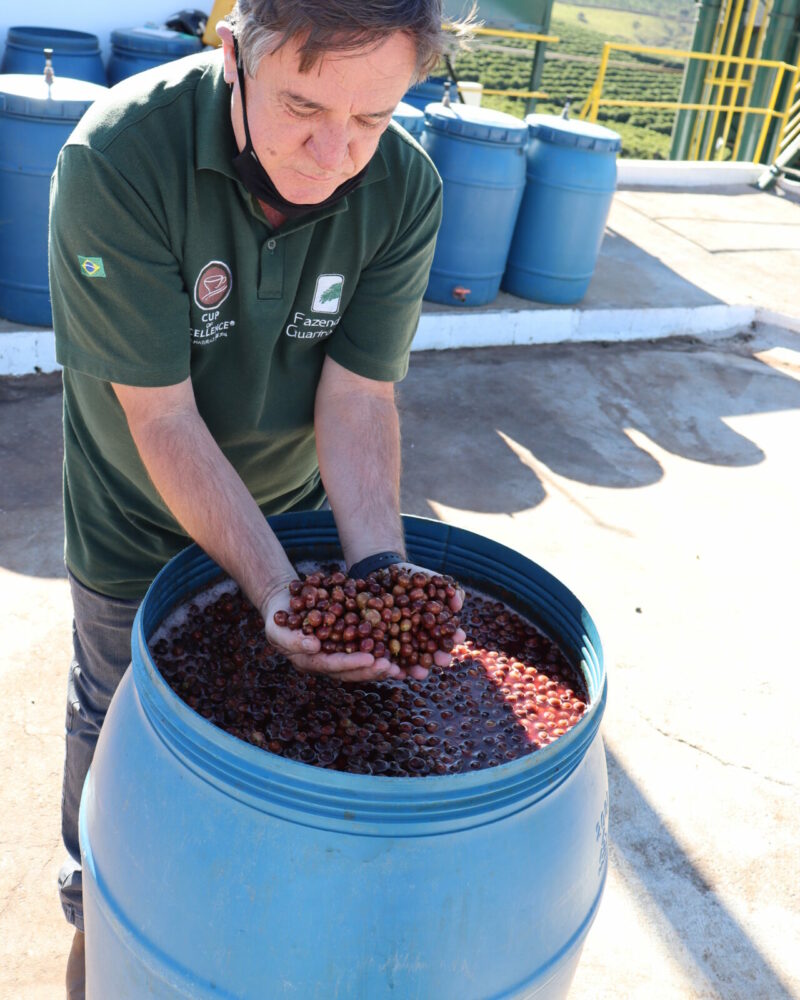Back in the 19th century, patriarch João Ferreira Carneiro was already producing sweet beans in the fertile soil of coffee plantation Santo Antônio do Amparo, where Fazenda Guariroba is now. His passion for the flavors and aromas of coffee was passed down through five generations of descendants, reaching Homero Aguiar Paiva. Homero acquired part of the century-old Fazenda Cachoeira and, with the help of his brother Renato Paiva (agronomist), chose the best varieties of coffee to maintain the cultivation, giving rise to Fazenda Guariroba – named in honor of the lands of his maternal grandparents.
The privileged terroir and the family’s vast knowledge guarantee excellence in producing specialty coffees with unique characteristics. Today, under the management of Gabriel Lamounier Vieira and Elisa Paiva Lamounier, Fazenda Guariroba represents Brazilian coffee internationally. Mr. Gabriel Lamounier Vieira is a chemist, and he analyzes and experiments with new processes with coffee fermentation in his chemist laboratory at Fazenda Guariroba. He also lectures other farmers on spreading his knowledge and increasing the general production of specialty experimental coffees.
Fazenda Guariroba is recognized as the champion farm of the Cup Of Excellence.
Fall in love with the unique flavor of the most awarded coffee in Campo dos Vertentes (MG).
IPA Process Description:
Cherries are picked with selective mechanical harvest (only cherries above 25ô brix’s – level of sugar contained in the bean). Soon after that, cherries are sent to a cleaning process, and they are soaked in water for 1 hour with a hydraulic selection, separating the green, ripe, and overripe. Initially, the cherries are fermented in a Carbonic Maceration for 48 hours in a tank. The fermented Cherries are then pulped and placed into a second carbonic maceration for 72 hours with a microorganism solution from the first fermentation and nitrogen injection. Coffee is sun-dried on African beds for 30 days until the humidity level is 11%. Final humidity stabilization occurs inside a warehouse for at least 20 days, and then the coffee is finally stored in grain-pro bags. After that, the coffees are cupped and organized into lots.


